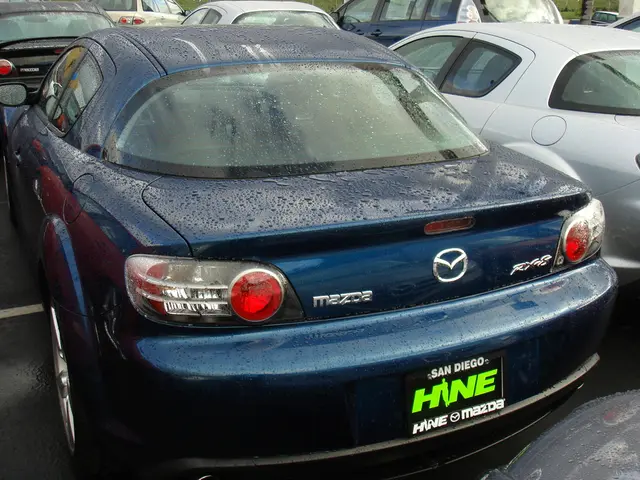Real estate speculation contributing significantly to housing instability, according to Lee's assertion.
In the bustling city of Seoul, an influx of young people is not deterred by the high cost of housing, as a recent report indicates that more young people are moving to Seoul than leaving it[1]. However, the current housing market in Korea is being affected by more than just demand and supply dynamics.
South Korea's new housing loan regulations, implemented in the greater Seoul area and other designated regulatory zones, aim to curb speculative buying and stabilize soaring home prices[2]. As of late June 2025, a 600 million won cap has been imposed on all housing-backed loans, regardless of income level or home price[3].
These regulations have introduced several key changes. The loan-to-value (LTV) ratio for first-time homebuyers has been lowered from 80% to 70%, with the additional requirement that buyers must move into their purchased home within six months[3]. Homeowners with two or more properties are prohibited from obtaining loans for additional dwellings, and single homeowners are barred from getting loans for new properties unless they dispose of their existing homes within the same timeframe[3].
The state guarantee for jeonse (key money deposit) loans will decrease from 90% to 80%, which will likely cause banks to tighten credit evaluations and offer smaller loans[3]. For multiple homeowners in regulated areas, the LTV for additional homes is set at zero, effectively banning mortgage lending for non-owner-occupied properties[3].
Despite these efforts to cool down the overheated housing market, there has been confusion and criticism surrounding these changes. The 600 million won mortgage cap, in particular, is seen as benefiting only the wealthy, who have sufficient liquidity to cover the large cash amounts needed to purchase homes in Seoul's high-priced districts[4]. For instance, buying an average apartment priced around 1.46 billion won now requires at least 860 million won in cash, placing homeownership out of reach for many middle-class buyers and entrenching housing inequality[4].
The government has signaled close market monitoring and indicated it may take further regulatory steps if necessary to stabilize the housing market[2]. Meanwhile, the housing market in Korea is also being impacted by trends in home preferences, with a growing preference for 'one smart home' influencing the distortion of the housing market[5].
In summary, South Korea's new housing loan regulations strictly limit mortgage amounts, tighten eligibility for multiple homebuyers, and reduce loan support to temper housing market overheating. However, these measures have sparked concerns about deepening inequality and confusion among prospective buyers, as the high cost of housing in Seoul continues to be a challenge for many young people and middle-class families.
[1] https://www.koreaherald.com/business/seoul-experiences-influx-of-young-people-despite-high-housing-costs/ [2] https://www.reuters.com/world/asia-pacific/south-korea-imposes-600-million-won-cap-mortgage-loans-2021-06-01/ [3] https://www.koreaherald.com/business/south-korea-imposes-tough-new-housing-loan-rules-to-curb-speculative-buying/ [4] https://www.aljazeera.com/economy/2021/6/1/south-korea-imposes-cap-on-mortgage-loans-to-cool-property-market [5] https://www.reuters.com/world/asia-pacific/south-koreas-preference-one-smart-home-influencing-distortion-housing-market-2021-06-02/
- The ongoing debate about South Korea's housing market involves concerns about the impact of the new regulation on personal-finance, particularly for middle-class buyers who find the 600 million won cap on housing-backed loans discriminatory and beyond their reach.
- In addition to the ongoing discussion about the housing market's influence on real-estate, there is growing interest in the role of trends in home preferences, such as the 'one smart home', in distorting the market.
- The column on the economy suggests that despite the government's effort to cool down the overheated housing market through strict loan regulations and eligibility changes, the high cost of business, particularly in Seoul, remains a significant concern for young people and many families.
- The recent report on the economy reveals that the new housing loan regulations, including the 600 million won cap, have been met with criticism for perceived bias towards wealthier buyers, potentially exacerbating financial inequality in the process of stabilizing the housing market.







